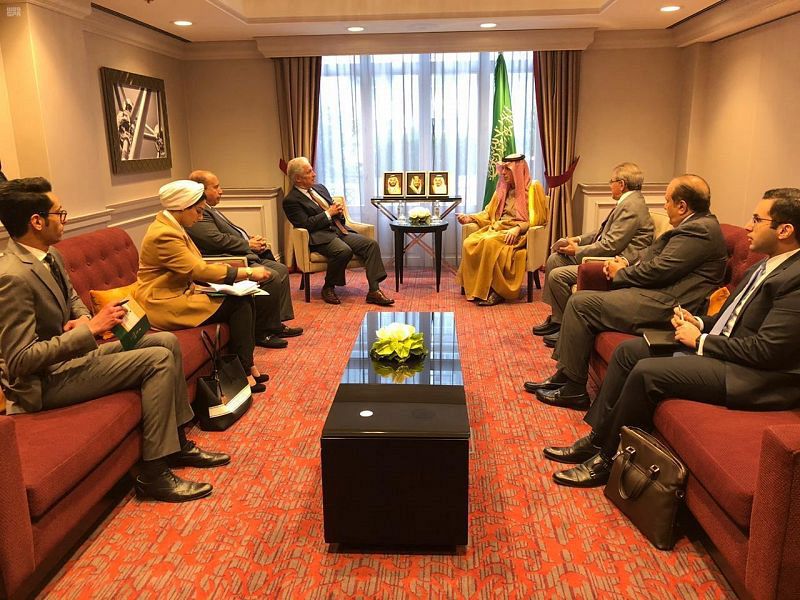
The Horn of Africa has always been the most tense, least stable and most attractive to external interference among all other parts of the continent. It has been plagued by internal conflicts on one hand and by the ambitions of other countries on the other, as great powers have sought to protect their economic interests in the region. Around 3.3 million barrels of oil traverse the Red Sea daily, not to mention the military bases established by other countries. Therefore, wars and conflicts that arose between the states of the Horn of Africa have had a tremendous impact not only on countries themselves, but also on the security and stability of the region and the world. Crises have persisted for decades without the ability of any country to resolve them.
The happy news finally came when Saudi Arabia was able to sponsor two peace agreements; the first between Ethiopia and Eritrea, which ended a bloody conflict that lasted two decades, and the other between Djibouti and Eritrea that put an end to a ten-year rift.
The Horn of Africa is a strategic region, not only for Asia and Africa but for the whole world. It overlooks Bab al-Mandeb Strait, one of the world’s most important waterways. The equator passes through its southern part and it has the most important ports of the region, such as the port of Kismayo and the port of Djibouti. It is inhabited by about 90 million people.
Historically, the Arab withdrawal from the region has enticed other countries to set a foothold, hoping to reshape the political and economic map of the Horn of Africa. But Saudi Arabia’s Crown Prince Mohammed bin Salman has worked quietly and continuously over the past four years to rehabilitate the Horn of Africa and to create a consensual formula with a strategic vision of collective benefit that all the parties would agree on.
In this regard, one cannot forget that the countries’ stability, support and consolidation were the fruit of the Saudi policy par excellence, in the face of the “stability of chaos” in the Horn of Africa, which is sought by other countries, in particular Qatar and Iran. Disastrous consequences have afflicted every spot where those two countries operated.
The Horn of Africa has faced three scenarios over the past 20 years: The first is an effort by Qatar and Iran to strengthen and expand their influence in the region, even if it contributed to aggravating the situation and prolonging wars. The second policy is that of fueling differences between the competing countries because of conflict of interests and different agendas. The third scenario is that these countries reach the conviction that cooperation and coordination is the best choice for all parties, in order to preserve their interests and the security and stability of the region. This is the scenario that Saudi Arabia has chosen and worked to implement, after it was met with great appreciation from the three states, as well as the rest of the Horn of Africa countries. Those were convinced that Riyadh’s interests rest in enhancing the security, stability and development of the region.
This is a legitimate objective that no one can oppose. When peace prevails, the Horn of Africa countries will become a fertile ground for investments that will fill the gap left behind by the Iranian agenda (in the Eritrean case) and the Qatari ambitions (in the Ethiopian case).
Within one year, from March 2015 till March 2016, the Custodian of the Two Holy Mosques, King Salman bin Abdulaziz, has met more than fourteen African leaders. Their visits led to the signing of several agreements for projects within their countries, from Gabon to Niger, Mauritania and Nigeria, the Horn of Africa countries, including Ethiopia, Djibouti, Eritrea and Somalia, reaching the Sudan and the Republic of the Comoros. This was followed by the institution for the first time in Riyadh of the post of minister of state for African affairs, a move that African countries positively welcomed and saw as evidence of the interest of major regional and stable states, such as Saudi Arabia, in the Dark Continent.
This was reflected in a historic agreement - the deal between Ethiopia and Eritrea - which the Saudi diplomacy worked silently on until the Jeddah peace treaty was signed, along with the reconciliation between Djibouti and Eritrea.
The rehabilitation of the Horn of Africa would not have succeeded without the clarity of Saudi policy and its firm and declared positions, which are based on supporting regional and international peace and stability, without interfering in the internal affairs of other countries. The Horn of Africa countries have tried the policy of “stability of chaos” and the results have been disastrous. The time has come to understand that investing in the region’s stability and development is a bet that no one will lose.








